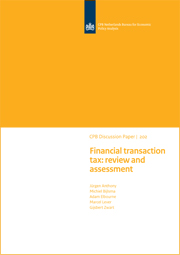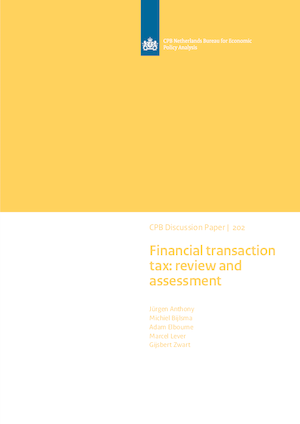Financial transaction tax: review and assessment

We find little evidence that the FTT will be effective in correcting market failures. Taxing of transactions is not well targeted at behaviour that leads to excessive risk and systemic risk creation. The empirical evidence does not suggest that the introduction of an FTT reduces volatility or asset price bubbles. An FTT will likely raise significant revenues and we estimate those revenues for the Netherlands. In the short term, the incidence of the tax will be chiefly on the current holders of securities. Ultimately, the tax will be borne in part by end users, and we estimate the likely effects on economic growth. When compared to alternative forms of taxation of the financial sector, the FTT is likely less e fficient given the amount of revenues. In particular, taxes that more directly address existing distortions, such as the current VAT exemption for banks, and the bias towards debt financing, provide more efficient alternatives.
Downloads
Authors

